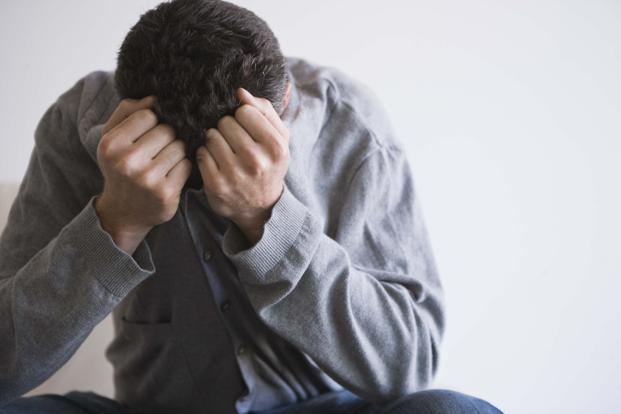Categories
- Bariatric Surgery (11)
- Black Fungus (5)
- Bone Marrow transplant (3)
- Brain Tumor Surgery Navigation Technology (20)
- Cardiac Surgery (66)
- Cardiology (97)
- Computer navigation technology for joint replacements (20)
- Covid Vaccination (17)
- Critical Care (2)
- Dental (19)
- Dermatology (31)
- Dialysis Support Group - “UTSAAH” (11)
- Dietitian (33)
- Emergency Medicine (4)
- Emotional Health (11)
- Endocrinology (33)
- ENT (20)
- Gastroenterology and GI Surgery (53)
- General and Laparoscopic Surgery (21)
- General Surgery (4)
- Gynecology & Obstetrics (183)
- Hematology (20)
- Internal Medicine (294)
- Kidney Transplant (50)
- Kidney Transplantation (20)
- Lung Cancer (8)
- Minimal Invasive Surgery (1)
- Mother & Child (20)
- mucormycosis (5)
- Nephrology (61)
- Neurology (147)
- Neurosurgery (68)
- Nutrition and Dietetics (107)
- Omicron Variant (1)
- Oncology (288)
- Ophthalmology (10)
- Orthopaedics & Joint Replacement (86)
- Paediatrics (59)
- Pediatric Nephrology (3)
- Physiotherapy (5)
- Plastic & Reconstructive Surgery (6)
- Psychiatry and Psychology (90)
- Psychologist (28)
- Pulmonology (72)
- Rheumatology (13)
- Spine Services (21)
- Transradial Angioplasty (16)
- Urology (84)
Query Form
Posted on Apr 19, 2022
Anxiety, Depression and Suicide- The lasting Effects
Anxiety, Depression, Stress are the ingredients that can propel a person to take devastating steps in one’s life such as suicide. Depression is a mental health issue that has gripped our nation extensively. Every year more than 10 million cases of depression are reported in India with the majority not being reported due to social stigma or unawareness. Today it is imperative for each one of us to be aware and informed about mental health issues so that one can detect the same early and seek medical advice and opinion at the right time.

Let’s know about mental health issues:
Anxiety: Anxiety is a normal response to danger but we can say abnormal when its severity is out of proportion to the treat of danger. Anxiety is a normal part of life and all of us will experience ‘difficult periods’ that are for the most part temporary and usually harmless. Many people are suffering from an anxiety disorder and the common symptoms of recognize the same are – experiencing fear, nervousness, constant worry, nail biting, etc.
Depression: Depression is the normal response to loss or misfortune, when it may be called grief or mourning. Depression is abnormal when it is out proportion to the misfortune or is unduly prolonged. Depressed mood is closely coupled with other changes, notably lowering of self-esteem, pessimistic or negative thinking and a reduction or loss of the experience of pleasure.
Anxiety and Depression: Depression and anxiety disorders are among the most common illnesses in the community and in primary care. Patients with depression often have features of anxiety disorders, and those with anxiety disorders commonly also have depression. Both disorders may occur together, meeting criteria for both. It can be difficult to discriminate between them but it is important to identify and treat both illnesses, as they are associated with significant morbidity and mortality. General practitioners are well placed to identify and take a primary role in treatment of these illnesses, to facilitate better mental health outcomes.
Suicide – The Lasting Effects: Suicide is currently the third leading cause of death amongst the youth between the ages of 15 and 24, and each year, nearly 4,600 young boys and girls between10 to 24 yrs of age commit suicide. Even more troubling is the statistic that for every suicide amongst ages 15 to 24, there are between 100 and 200 suicide attempts. In fact, a national survey conducted in 2011 found that 15.8% of high school students seriously contemplated suicide in the last year, 12.8% had made a plan to commit suicide, 7.8% had attempted suicide at least once, and 2.4% received medical care for an injury sustained during a suicide attempt. These troubling statistics point to a serious problem for youth today.
What can you do?
Observe & Act– If you can sense that a person is in depression, please talk to him or her and be there for them. Try and counsel them to seek medical expertise. Make them understand that seeking help or talking to someone is normal and healthy. Do not leave them alone or make fun of them. Also, report if you see them participating in activities that can cause self – harm.
Take action for yourself – If you are suffering from depression, it is best advised that you take action and consult a psychologist or a psychiatrist at the earliest.



